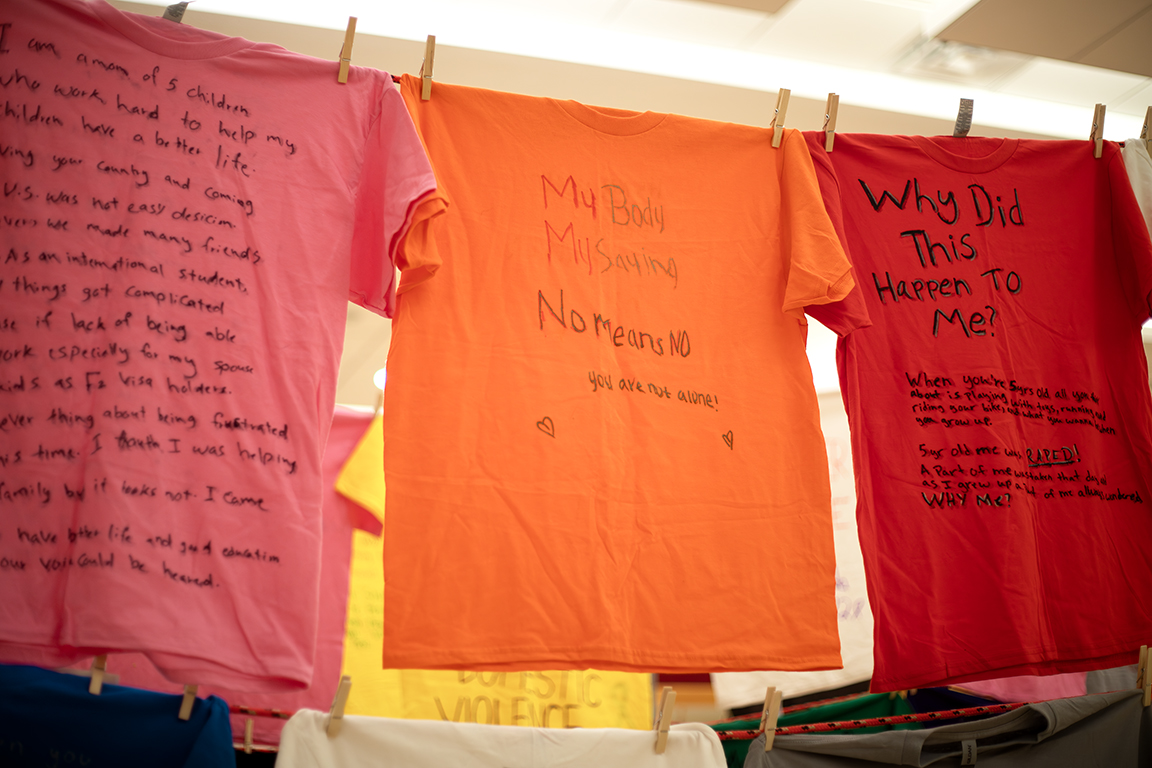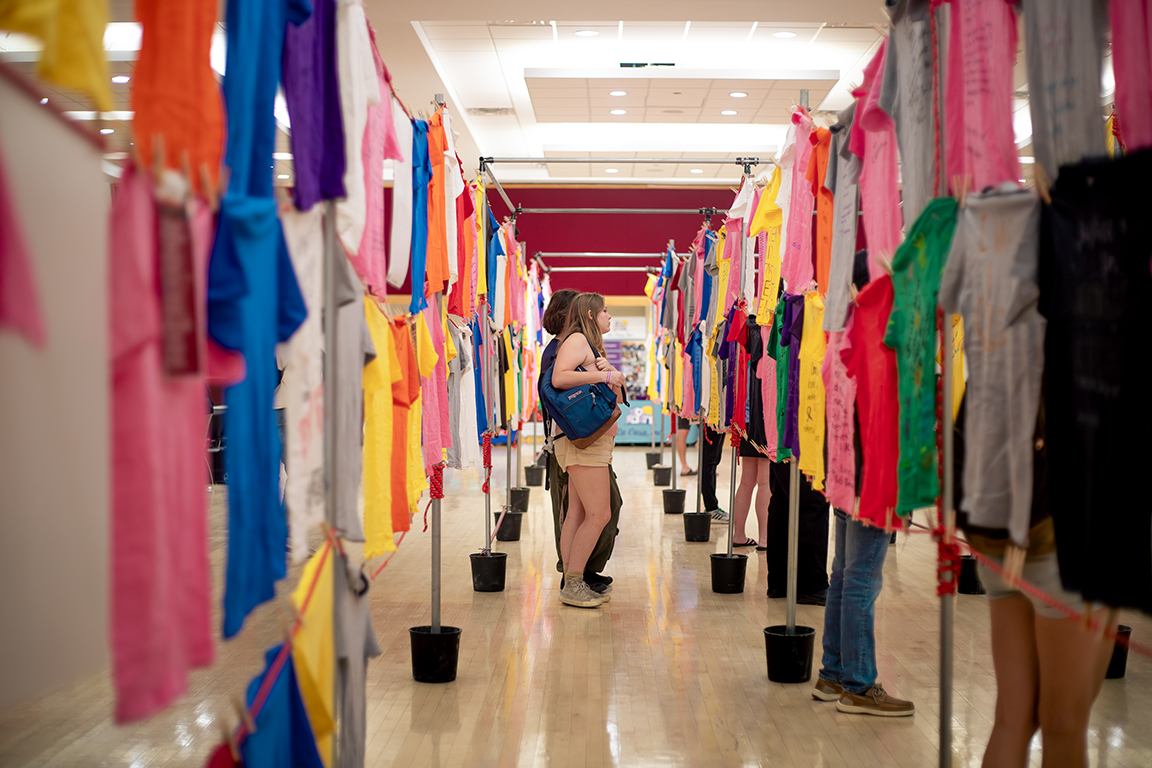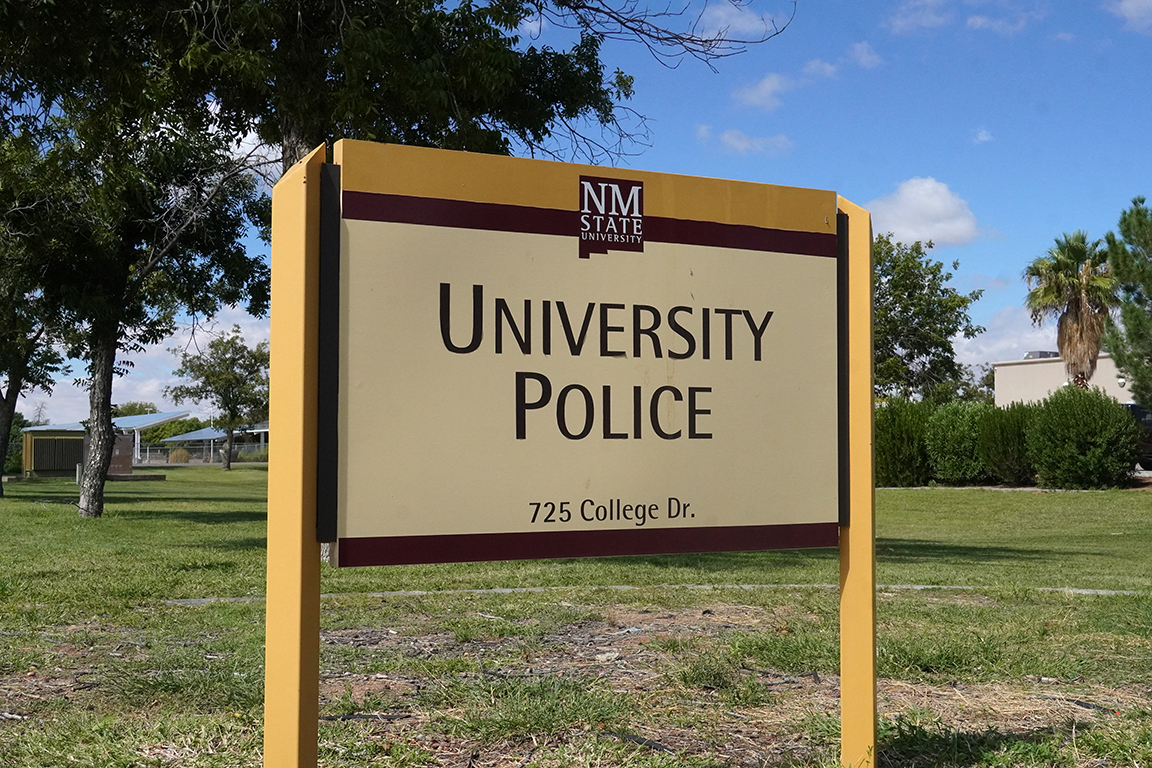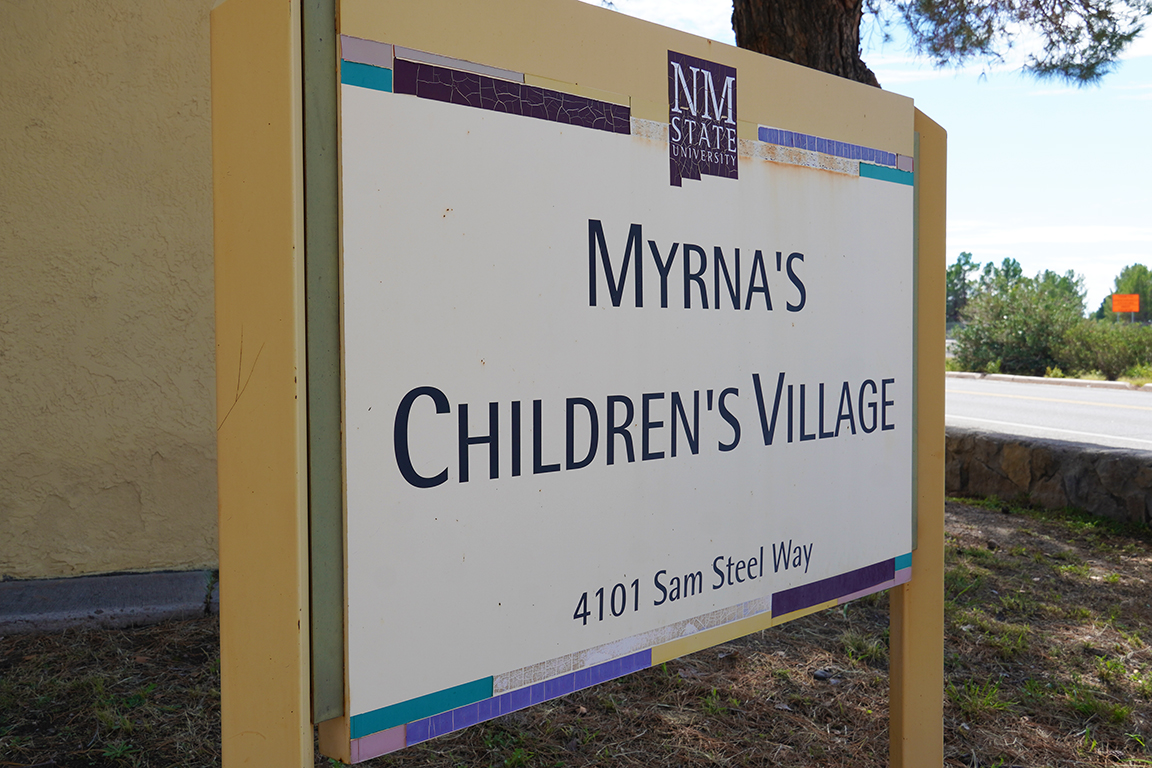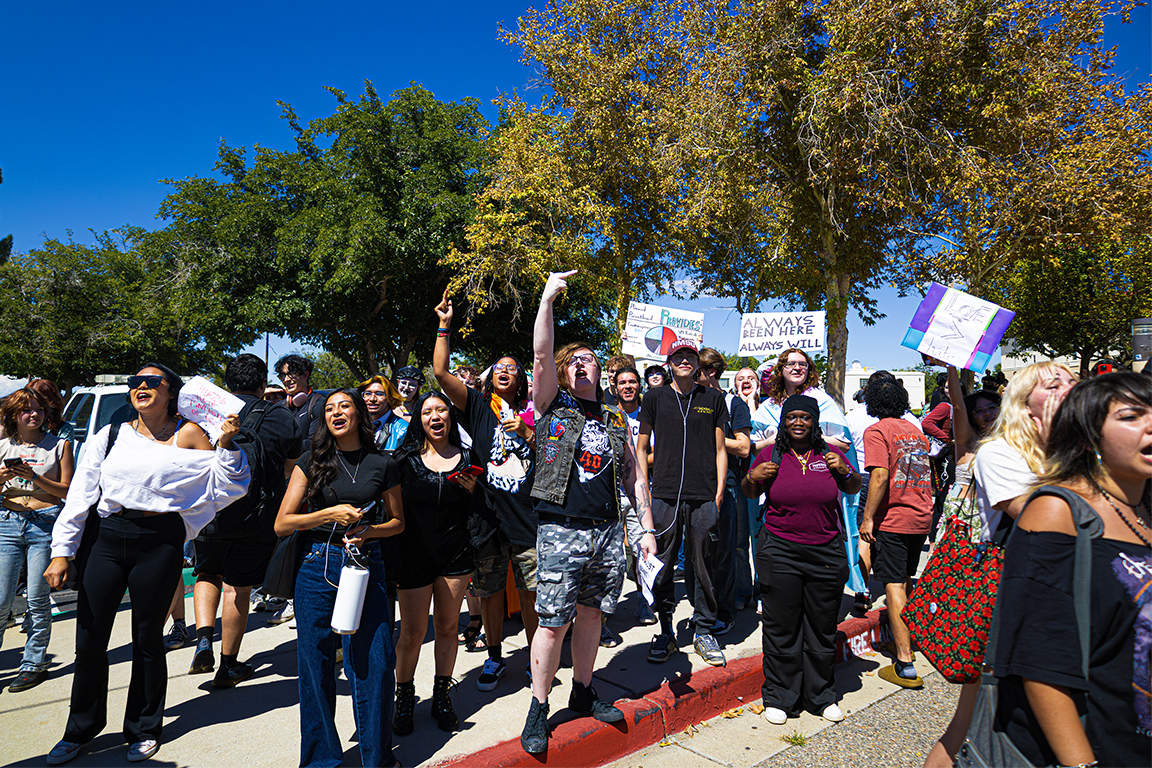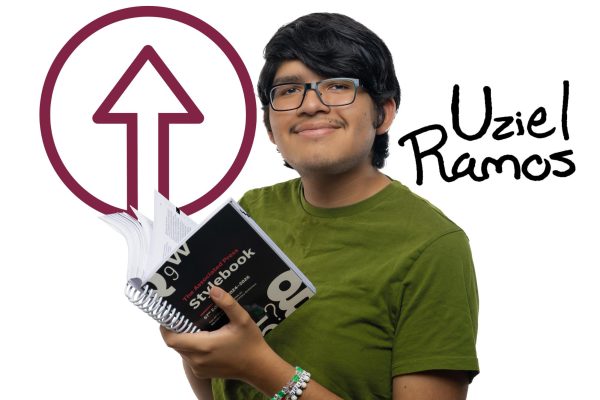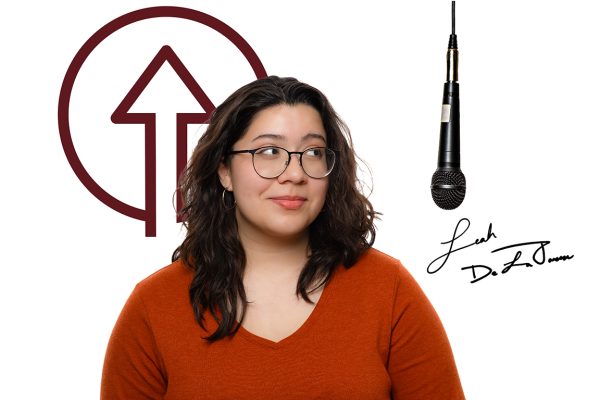This article contains mentions of assaults that are sexual in nature. If you or someone you know experiences sexual violence, or any form of sexual assault, you can find local support via La Piñon’s 24-Hour Crisis Hotline at 575-526-3437 or go to www.lapinon.org.
For the third year in a row, the Clothesline Project served as a method for survivors of abuse to speak out about their trauma with a layer of anonymity. On Oct. 15, volunteers offered shirts for students to write on at New Mexico State’s University’s Clothesline Project in the Corbett Center Student Union ballroom.
Students wrote on different colored shirts, with each shirt color representing the type of violence the person writing on it experienced.
White T-shirts symbolized someone who died because of violence and black ones represented disability because of violence. Brown and gray ones represented survivors of emotional or verbal abuse, while purple ones stood for survivors of attacks because of their sexual orientation. Blue and green ones symbolized survivors of incest or child abuse; red, pink, and orange ones represented survivors of rape or sexual assault; and yellow ones stood for survivors of physical assault or domestic violence.
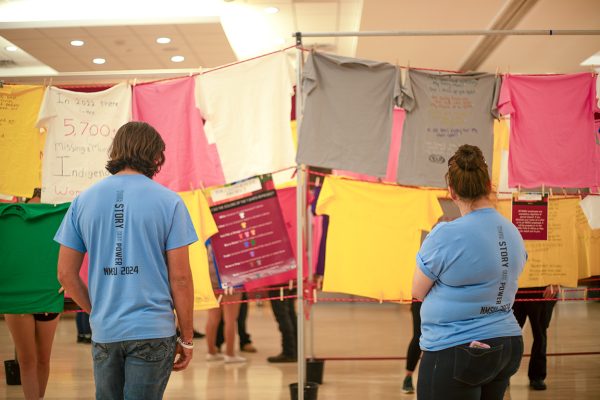
Alumni Nika Olsen, one of the volunteers who gave out shirts, described how seeing other people’s stories can build a strong community of survivors.
“It fosters connection and community,” Olsen said. “When you see what the people around you are going through, it can be inspiring. I know for us criminal justice students, it is inspiring to help change the culture around campuses, and to protect these people who are so often unheard.”
Alongside bringing more awareness, Project Coordinator Erika Valencia, who presided over a booth for the Las Cruces Police Department’s Victims Assistance Unit, mentioned that another major goal of the Clothesline Project was to empower and support the voice of victims.
“So, the goal of this project is to empower victims to get their messages across, to spread awareness about domestic violence and sexual assault in our community,” Valencia said. “It is important for students specifically to be aware of this because it is a voice for them. If they have something going on and they know they will have support from within the community of not just the school, but the city as well, they will share their story, seek services, and find help.”
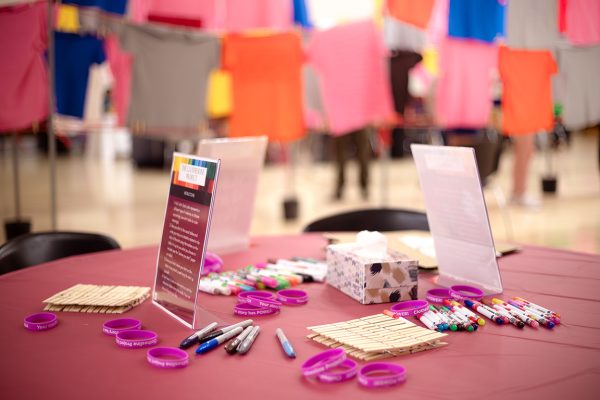
Additionally, Valencia explained that empowering the words of survivors is key in inspiring others to do the same.
“If it is something that they haven’t necessarily worked through yet, they have a specific outlet designed just for them to get their story out there,” Valencia said. “They have a safe space where they have advocates, somewhere they have counselors, somewhere they have the resources they may need.”
Another Clothesline Project volunteer, Deanna Sifuentes, gave a message to victims and survivors who are struggling to speak out about their past or current experiences.
“Know that you are not alone and know that there are many people who have gone through similar things as you have. It is not your fault, being victimized is never your own fault. And there is nothing people can ever take away from you,” Sifuentes said.


